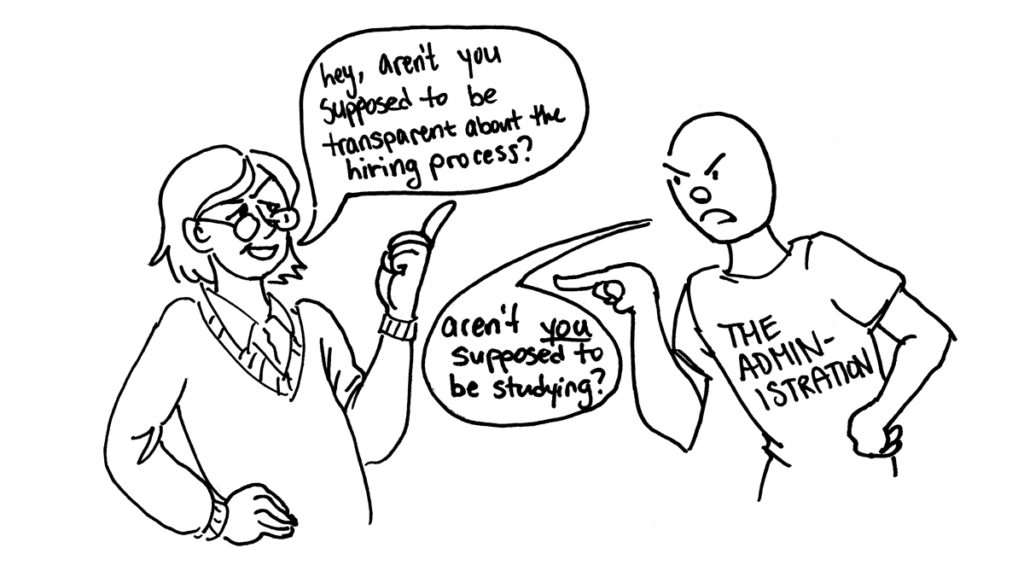When Ithaca College President Shirley M. Collado joined the college administration in 2017, she brought with her a renewed sense of hope and transparency between the administration and campus community members. Yet Collado’s commitment to transparency has been inconsistent, particularly as it relates to the selection and appointment of higher-ups in the administration.
Since Collado joined the campus community, her administration has appointed a number of higher-level employees through closed-search processes. This means Collado and select members of the administration have full control over the selection of candidates, and these candidates’ identities are not made public to the campus community.
Last week, Collado announced that the administration will form a small search committee to find a replacement for Melissa Daley, chief of staff to Collado, after Daley decided to leave the college Dec. 2 to join the administration at Emory University in Atlanta. After years of selecting administration members through closed-search processes, it seems that this is a step in the right direction. But, in reality, it raises concerns about the administration’s allocation of resources and reveals the administration’s faults in terms of creating a fully open and transparent campus community.
Because the president’s chief of staff works closely with the college’s vice presidents and is responsible for managing the day-to-day functioning of the Office of the President, they have a very indirect relationship with campus community members and little to no influence over the issues that affect them. The search for a person to fill this position does not realistically demand input from anyone but Collado herself, as it has little to no impact on the day-to-day lives of other campus community members, whereas positions that work directly with the campus community — like the vice president for student affairs and campus life, who was selected through a closed process — do.
Right now, committees in the James J. Whalen Center of Music and the Roy H. Park School of Communications are beginning their searches for the schools’ new deans. The initial stage of this process includes discussions about whether their searches will be open, hybrid or closed — a decision that will have a significant impact on the entire search process. Whether or not the public will have the opportunity to identify and evaluate potential candidates will not only have a tremendous impact on current students, faculty and staff, but also on the future of these schools as a whole.
When looking to fill vacant positions, it is necessary that the administration and other higher-level employees at the college evaluates the wider impact of its searches on student and campus life and adjusts its processes accordingly. Finding a balance between input from the administration and campus community members when selecting candidates can undoubtedly be a difficult task to navigate, but it is not something that can be ignored. In order to authentically work toward a more transparent, open campus community, the administration must actively recognize the wider implications of its administrative search processes and its crucial impact on members of the campus community.














